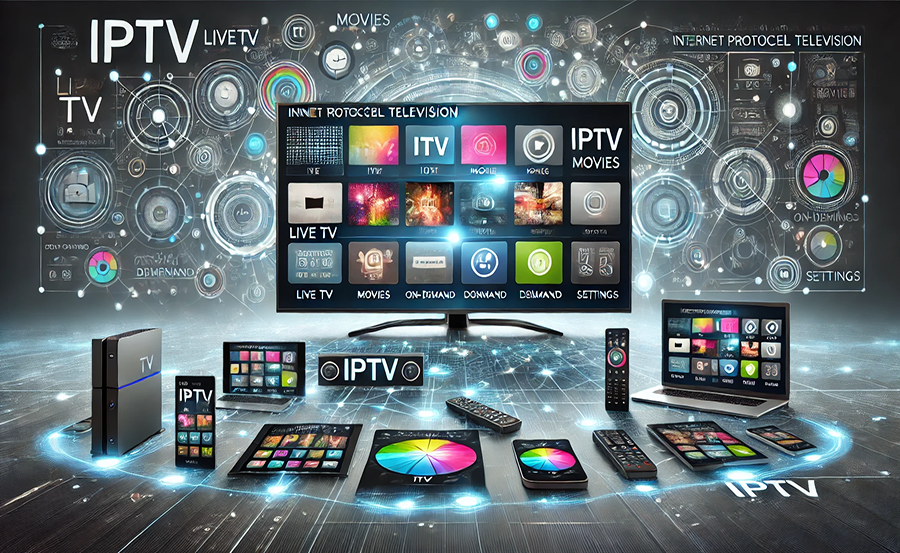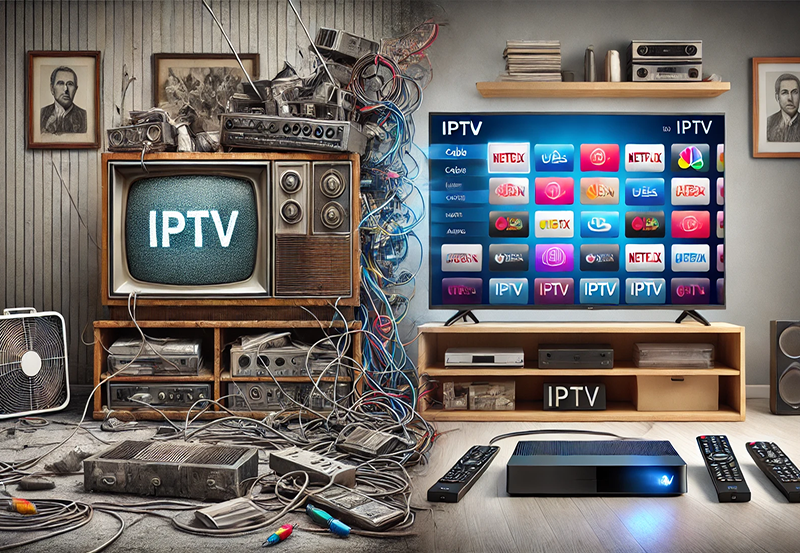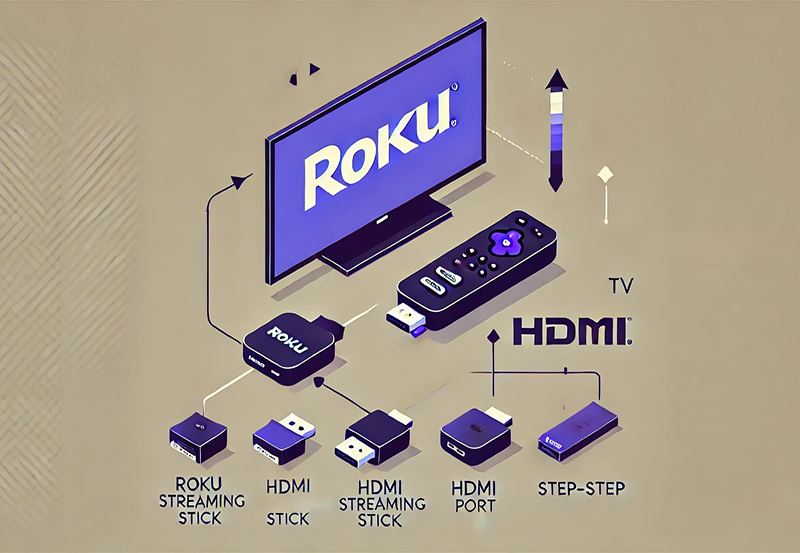Welcome to the fascinating world of IPTV! If you’re here, you’re likely curious about the new wave of television streaming that’s revolutionizing the way we access media. IPTV, or Internet Protocol Television, offers a unique way to consume content, making traditional cable and satellite TV seem almost like a relic of the past. Let’s embark on this journey together, breaking down complex terms into simple truths. Whether you’re a tech enthusiast or someone looking to cut the cord, this guide is tailored for you.
What is IPTV?
Television has come a long way since the days of broadcasting towers and rabbit ears. But what exactly is IPTV? Simply put, IPTV stands for Internet Protocol Television. Unlike traditional cable or satellite TV, IPTV delivers television content using Internet protocols, giving you a more flexible and personalized viewing experience.
- Buy 1 Year IPTV Subscription and Enjoy Unlimited Content
IPTV works by streaming video content over the internet, meaning you can watch your favorite shows and movies on virtually any device with an internet connection. This shift from traditional broadcasting to internet-based delivery means you have more control over what, when, and how you watch.
The Mechanics of IPTV
At its core, IPTV relies on a series of network protocols that manage the packaging and delivery of multimedia content. When you select a program to watch, these protocols ensure that data packets make their way from the server to your device seamlessly. Here’s how it works:
- Content Acquisition: IPTV providers source content from television networks.
- Data Conversion: Live and VOD content is transformed into IP-friendly formats.
- Content Delivery: Data packets are sent through a managed network to your IPTV box or app.
Benefits Over Traditional Television
With IPTV, gone are the days of rigid TV schedules and geographic restrictions. Here are some advantages:
- Flexibility: Watch content when it’s convenient for you.
- Compatibility: Use a variety of devices like smart TVs, tablets, or smartphones.
- Customization: Choose packages that cater to your preferences, avoiding unwanted channels.
Choosing the Best IPTV Service
With so many options available, selecting the best IPTV service can be daunting. Different services offer varying content packages, reliability, and pricing models. Although there isn’t a universal answer, there are key factors to consider that can help you make an informed decision.
Content Variety
One of the first things to consider is the range of channels and on-demand content available. Services may offer international channels, sports packages, movies, and more. Look for a provider that offers the programming you’re most interested in.
Reliability and Support
A reliable IPTV service should provide uninterrupted streaming with minimal buffering. Check for customer reviews and testimonials to gauge the performance and reliability of the service. Furthermore, ensure the provider offers robust customer support to assist with any technical issues you might encounter.
Pricing and Packages
IPTV services come in a variety of pricing structures, from basic packages to premium subscriptions that include additional features like catch-up TV and multi-screen viewing. Weigh the cost against the features offered and choose a plan that fits your viewing habits and budget.
Getting Started with IPTV: Hardware and Software Requirements
Now that you’ve learned what IPTV is and have an idea of what you’re looking for in a service, it’s time to think about the necessary hardware and software to get started. Luckily, the entry barriers are relatively low, with many options to cater to different needs.
Devices You Can Use
IPTV is designed to work on a wide range of devices, providing flexibility for all users:
- Smart TVs: Built-in apps often support IPTV services directly.
- Streaming Devices: Gadgets like Amazon Fire Stick, Roku, or Apple TV can be easily setup for IPTV.
- Mobile Devices: Install IPTV apps on smartphones or tablets for portable streaming.
Software Applications for IPTV
Software plays a crucial role in accessing IPTV services. The app you choose will depend largely on compatibility with your device and the IPTV service provider. Some popular applications include TiviMate, Kodi, and GSE Smart IPTV.
Setting Up Your Device
Setting up IPTV on your device is generally straightforward and involves downloading an app, entering a playlist or server address, and configuring settings to suit your preference. Dedicated setup instructions are usually available from both the service provider and application developers.
The Role of M3U Playlists in IPTV
An important component in IPTV streaming is the M3U playlist—essentially a text file containing URLs to audio and video streams. These playlists are a foundational element of your IPTV experience, as they direct your application to the content you wish to access.
Understanding M3U Playlists
M3U playlists function like maps that guide your IPTV application to the right resources. Each line in the playlist corresponds to a channel or video file, providing details such as the stream’s URL, the channel name, and potentially, the logo used for display.
How to Use M3U Playlists
To make the most of your IPTV service, understanding how to import and manage M3U playlists is crucial. Most IPTV apps allow you to input the playlist URL directly, but some advanced users prefer manually editing the playlist for a more customized experience.
Benefits of M3U Playlists
Why utilize M3U playlists? The answer lies in their simplicity and versatility:
- Offer easy access to a variety of channels and on-demand content.
- Allow for simple updates and modifications.
- Enable seamless addition of new channels over time.
Maximizing Your IPTV Experience
To truly enjoy IPTV, maximizing your viewing experience goes beyond just setting up your hardware and software. Consider these tips to enhance the quality and enjoyment of your IPTV service.
Optimizing Internet Connection
A strong and stable internet connection is vital for uninterrupted IPTV streaming. Consider using a direct Ethernet connection when possible, investing in a quality router, and ensuring your bandwidth can handle HD or 4K streams if needed.
Customizing User Preferences
Most IPTV applications allow customization—take advantage of features such as favorites lists, parental controls, and personalized interfaces. Spend some time exploring your app’s settings to tailor your viewing experience to your liking.
Regular Maintenance and Updates
Keep your devices and applications updated to the latest software versions. This ensures optimal performance and benefits from the newest features and security patches available.
The Future of IPTV
As Internet speeds increase and more people demand flexibility in their viewing habits, IPTV is poised for continued growth. It’s transforming not just how we watch television, but how content is created and delivered worldwide.
Emerging Trends
Expect to see more integration of IPTV with other digital services, like virtual reality and interactive television. Providers are also likely to focus on improving user interfaces and personalized content delivery using AI technologies.
The Impact on Traditional Broadcasting
IPTV is gradually diminishing the relevance of broadcast television. By offering a wider range of content that can be accessed according to personal schedules, IPTV is steering the media industry towards a more viewer-centric model.
Final Reflections
Embarking on the IPTV journey opens a whole new universe of entertainment experiences. With careful consideration and a bit of patience, the transition to IPTV can be smooth and rewarding. As you explore, remember to continually read about and incorporate the latest developments in technology to enhance your IPTV setup.
FAQ Section

What is the best IPTV service available?
While the “best” service can vary based on personal preference, it generally hinges on content selection, reliability, and pricing. It’s recommended to research and try a few to see which aligns with your viewing needs.
How do I find M3U playlists for IPTV?
M3U playlists are often provided by IPTV service providers upon subscription. Additionally, several online forums and websites share free playlists, although these can be less reliable.
Is IPTV legal to use?
IPTV as a technology is legal; however, it becomes complicated when services stream content without acquiring proper licenses. It is essential to ensure your chosen IPTV provider is operating legally.
What bandwidth is required for IPTV?
For standard-definition streaming, a minimum of 3 Mbps; 5-8 Mbps for high definition, and at least 25 Mbps for 4K video quality is recommended. Overall, a more robust connection yields better results.
Can I use IPTV on multiple devices?
Most services allow usage on multiple devices, often with simultaneous viewing limits based on the subscription plan. Always check your provider’s policy on multi-device access.
How can I improve my IPTV streaming quality?
Ensuring an optimal internet connection, using quality hardware, and tweaking application settings are effective methods to enhance IPTV streaming quality. Regularly updating your software is also beneficial.
How to Set Up Lazy IPTV: A Beginner’s Comprehensive Guide




